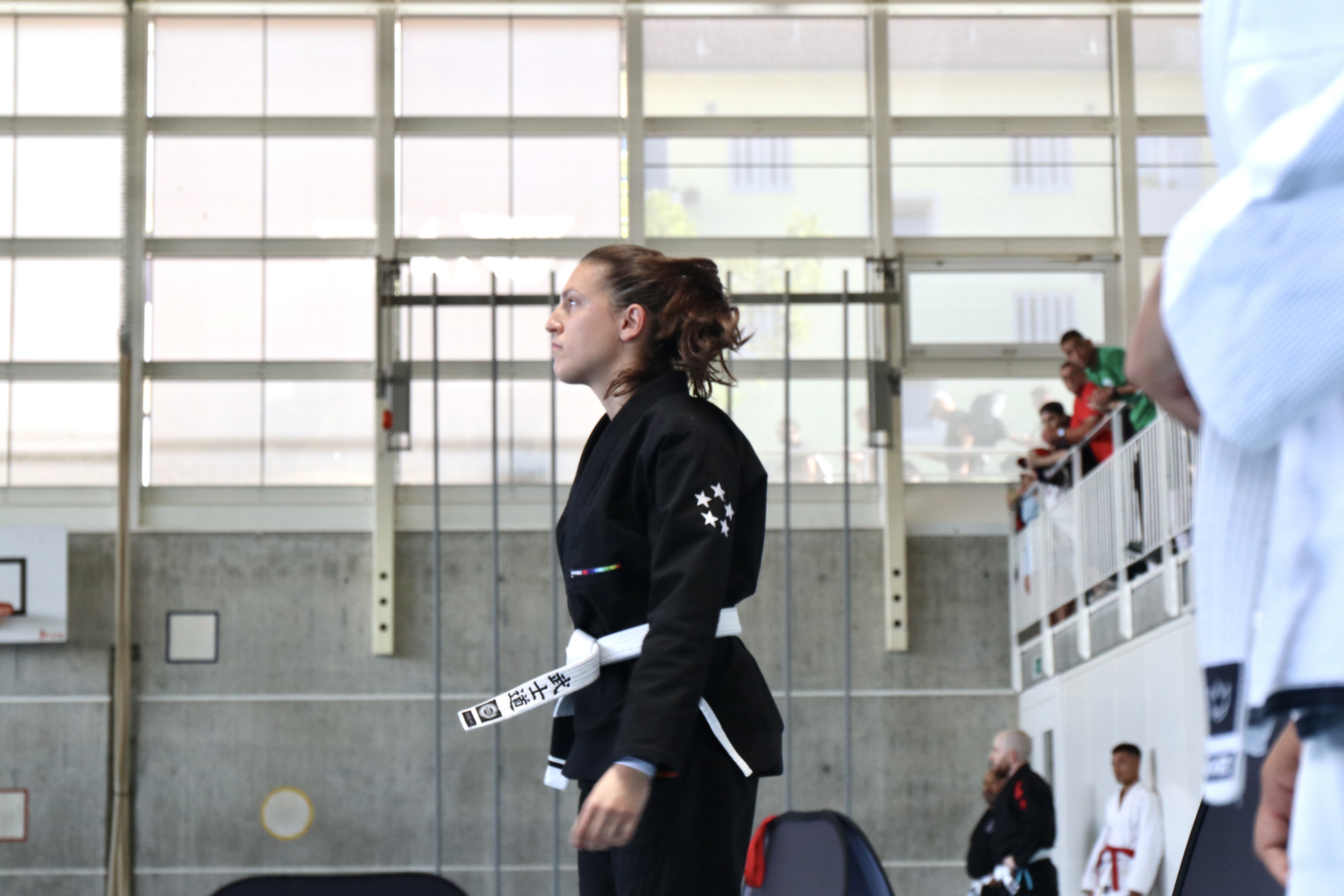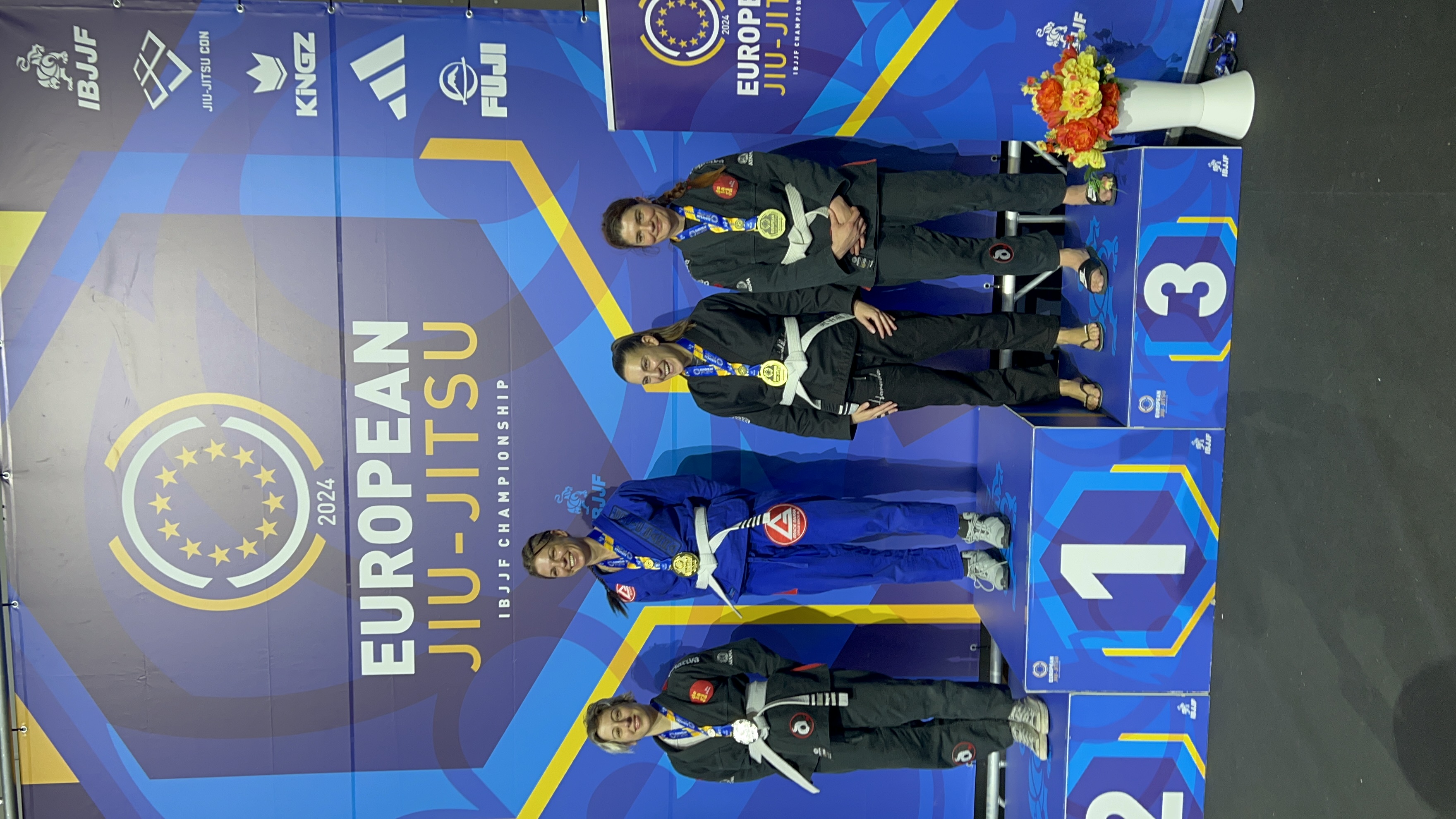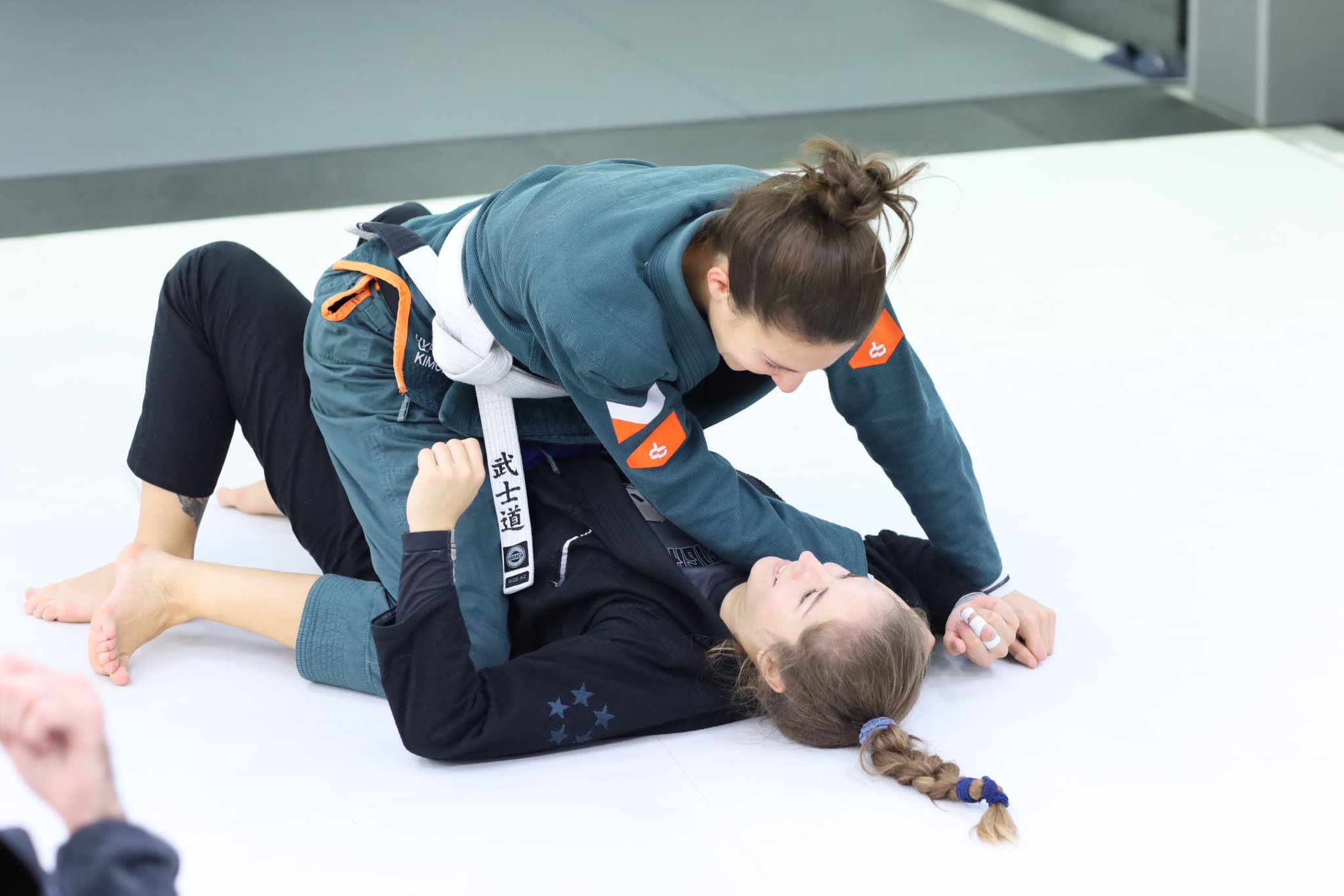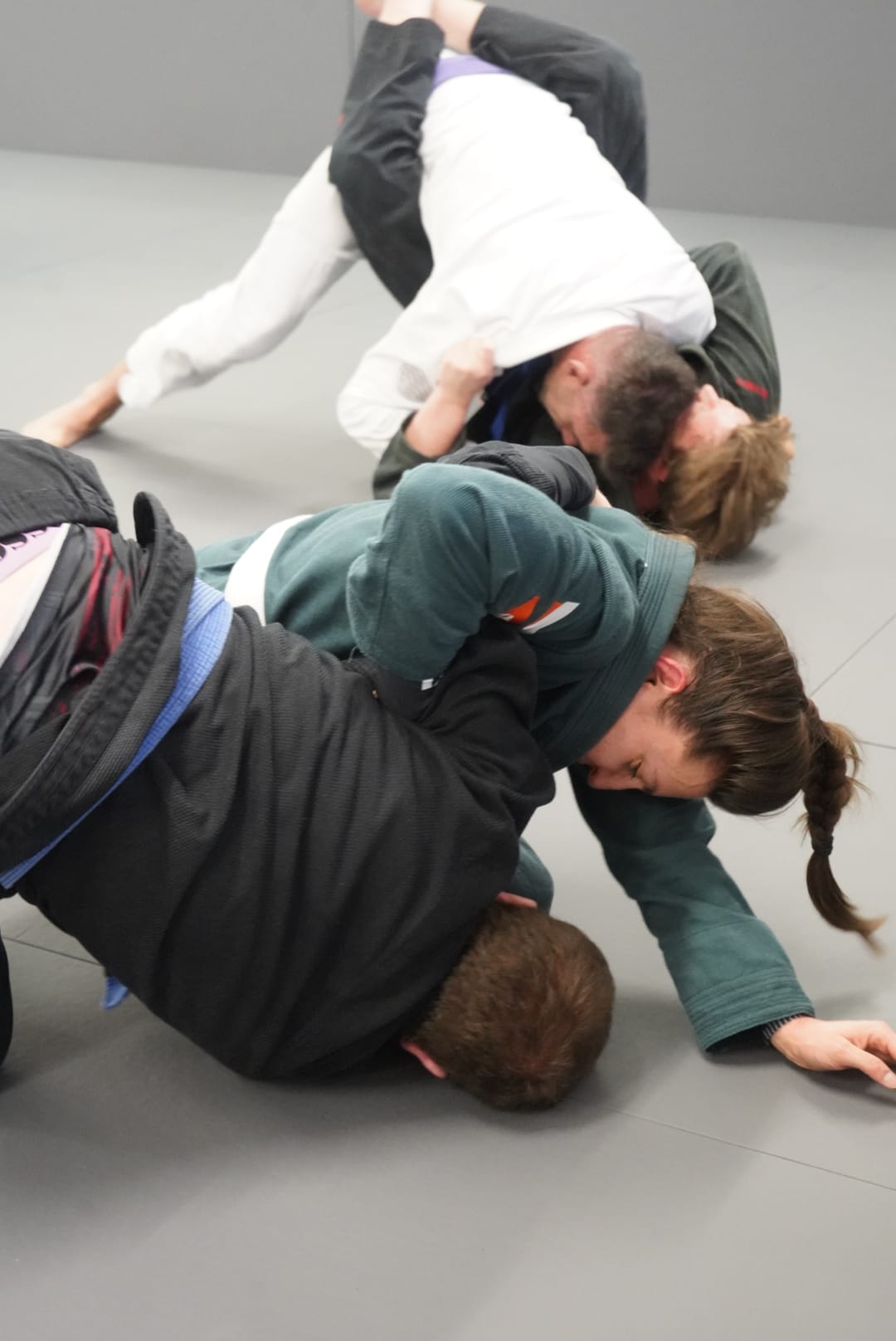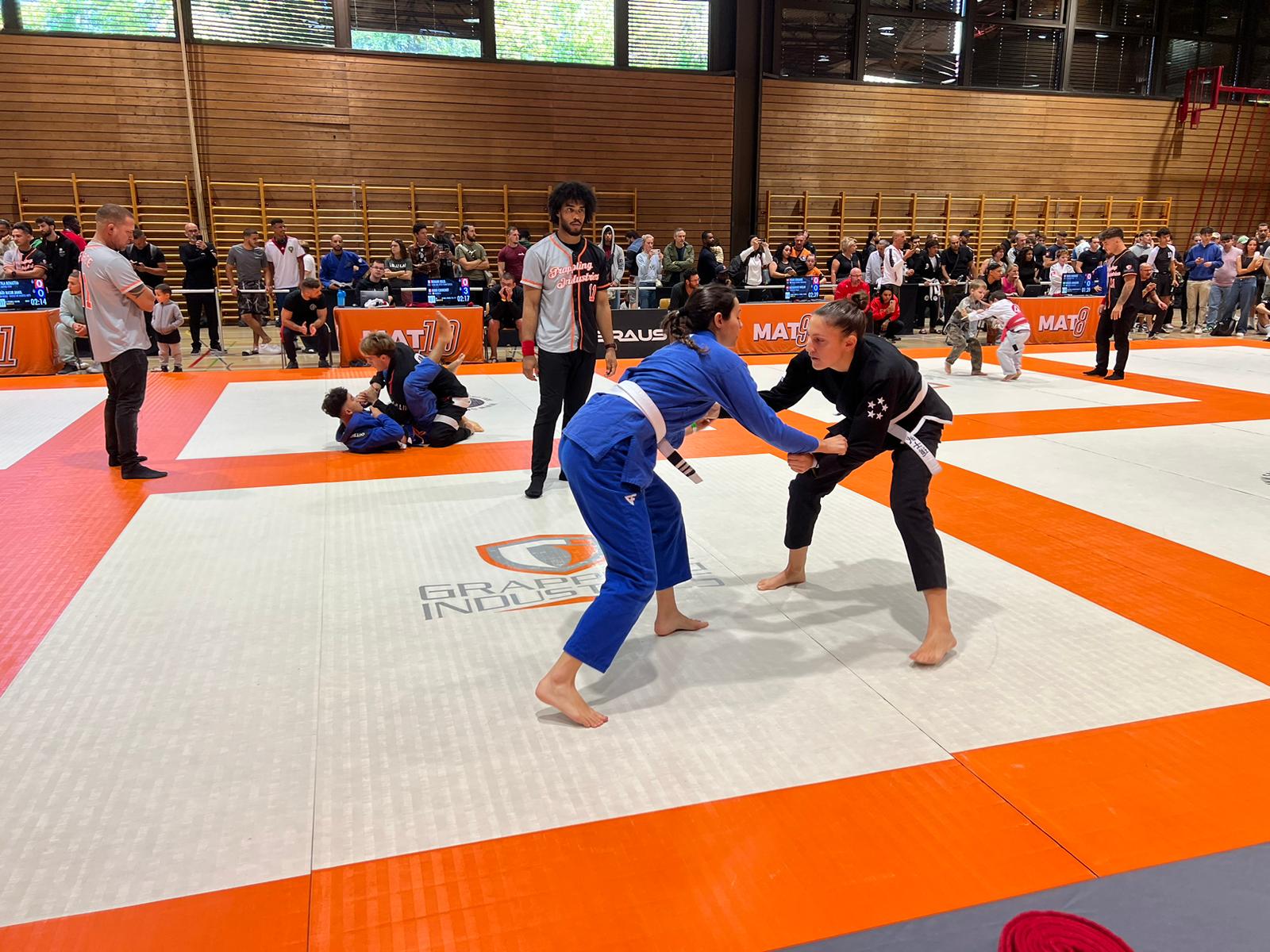“It's great that ti&m gives me the freedom to pursue competitive sports”
Brazilian jiu-jitsu is Caterina Valente’s passion. She won bronze at the European Championships in Paris this year and is currently preparing for the upcoming World Championships in the USA. In this interview, she talks about her packed schedule, not getting much sleep, and the challenge of balancing her work at ti&m with her training.
Many congratulations on winning the bronze medal in Paris. How would you rate your performance?
Thank you very much. I am very happy with my performance. It was the first time I had participated in the European Championships. The standard was very high and I had a lot of opponents, which meant a lot of fights. It was an incredibly amazing experience and I’m already looking forward to the upcoming European Championships in Lisbon in January 2025.
Your next goal is to qualify for the World Championships in the USA. Are you on the right track?
There are still a few competitions to come and a lot of work to do, but yes, I would say so. When preparing for the World Championships, it’s not just about training hard, but also knowing when your body needs to rest and take a break so that you’re able to perform at your best in the qualifiers and get a place on the podium – ideally first place, of course.
“When preparing for the World Championships, it’s not just about training hard, but also knowing when your body needs to rest and take a break so that you’re able to perform at your best in the qualifiers”– Caterina Valente
You recently fought in a higher weight class and earned points for the qualification.
Yes, I did. I had no opponents in my weight class, so I decided to compete in a much higher weight class to still earn points. My opponents were all at least 20 kilograms heavier than me, but I still managed to secure third place in this competition. That was a huge success and earned me a lot of points.
How common are injuries in jiu-jitsu?
I wouldn’t say they’re any more common than in other sports. Fortunately, I’ve never had any really bad injuries. Sure, bruises, the occasional black eye, and skin burns from the mat are all part of it. It wasn’t easy when I broke my little finger and had an important competition just two weeks later. I got a splint for my broken finger, but you’re not allowed to wear splints in fights, because for your own safety and that of your opponent, no hard objects are permitted. So I was only allowed to tape my finger. Sometimes you just have to grit your teeth. But it was worth it. I won the silver medal at that competition, despite my broken finger.
“I once had to fight with a broken finger. Hard objects such as splints are forbidden in jiu-jitsu, so I was only allowed to tape the finger. Sometimes you just have to grit your teeth.”– Caterina Valente
What does your daily routine look like?
I get up at 4:45 a.m. and start work at 6:30 a.m. I finish at 4 p.m. and am on the mat at 5 p.m. But things don’t end after training. You have to shower, wash your training clothes, clean and disinfect all your equipment such as your mouthguard. And, of course, you also have to eat healthily at some point. It’s usually gone 10 p.m. by the time I get to bed.
Sounds like a packed schedule.
Absolutely. I train six times a week, including regular fitness and strength training. In martial arts such as Brazilian jiu-jitsu, functional strength training is important for agility and explosive strength. I am also a member of two volunteer fire companies, am currently doing a CAS, and work full-time at ti&m in the Bid Office.
“I train six times a week, including regular fitness and strength training. I am also a member of two volunteer fire companies, am currently doing a CAS, and work full-time at ti&m in the Bid Office.”– Caterina Valente
How do you manage all of that?
It’s actually not always easy. Sometimes I don’t get enough sleep. During the week, I get by on five to six hours. At the weekends, I make up for it and sleep significantly longer. My tip for anyone with a busy schedule: Hang up a whiteboard! I use one to note down my schedule for the week. That’s really helpful in keeping track of my appointments.
You work full-time at ti&m ...
Thanks to flexitime, that works very well. In the Bid Office I can work very flexibly, according to my own schedule. I sometimes work after training or on a Saturday, which is perfectly okay. I think it’s great that ti&m gives me the freedom to pursue my passion and engage in competitive sport. There may come a time when I’ll only work 80 percent – we can adjust the workload flexibly each month. My work-life balance probably works so well because I really enjoy my job.
Was this flexibility the decisive factor in you joining us?
Not just that, but it undoubtedly played a big part. In the end, everything just fitted together perfectly. I was certain that by joining ti&m I had found the job that I would really enjoy doing and that would suit me down to the ground. And now, a good year later, it turns out that I was absolutely right.






